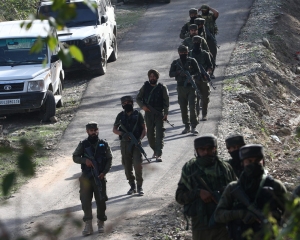In what is being seen as a damage control move amid nationwide protests by doctors following the rape and murder of a 31-year-old trainee medico at Kolkata’s State-run RG Kar Medical College and Hospital, the Centre on Friday instructed the heads of Government hospitals across the country to file an institutional First Information Report (FIR) within six hours of any incidence of violence.
The Union Health Ministry has been facing criticism for its failure to provide a safe environment for the medical fraternity despite several cases of violence against healthcare workers reported in the past within hospital premises.
In fact, Friday’s directive by the chief of the Directorate General of Health Services (DGHS), Dr Atul Goel, to file FIR within six hours of an incident follows a recent circular from the National Medical Commission (NMC), the country’s apex medical education regulator, which similarly stated that in the event of any violence, there should be a prompt investigation by the college management, FIRs should be lodged with the police, and an action-taken-report should be sent to the NMC within 24 hours.
In the memorandum issued on Friday, the DGHS stated that “in the event of any violence against any healthcare worker while on duty, the head of that institution shall be responsible for filing an institutional FIR within a maximum of 6 hours of the incident.”
“Recently, it has been observed that violence against doctors and other healthcare staff in Government hospitals has become common. A number of health workers suffer physical violence while on duty. Many are threatened or subjected to verbal aggression. Most of this violence is perpetrated by either the patient or the patient’s attendants,” the memorandum added.
This has been a long-standing demand of resident doctors, as FIRs are not filed in connection with many incidents despite existing mechanisms. The doctors have also been seeking enactment of a Central Protection Act to deter violence against medical personnel on duty. A draft prepared in 2019, following similar outrage over the assault on a doctor in Kolkata, proposed imprisonment for up to 10 years and a fine of up to `10 lakh for violence against doctors on duty is still in a limbo.
The DGHS advisory also stated that all Central Government hospitals should maintain a registry of such incidents and report them to the Health Ministry.
Filing an institutional FIR is necessary to ensure that investigations and cases may continue even if the original complainant — often resident doctors - has moved to other hospitals after completing their education or tenure.
Dr Siddharth Tara of the Progressive Medicos and Scientists Forum said, “Indian health care system rests on the shoulders of women-right from ASHA workers to female nurses and doctors. It’s about their right to earn a living with dignity and safety at their workplaces.
“A central law that protects health care workers from violence can no longer be denied to us. Major hospitals should be considered as critical industrial sites like airports and oil refineries, and CISF personnel should be deployed to control entry and exit points. In view of the administrative complicity in RG Kar Medical College, all medical courses in colleges which fail to provide a safe workplace to their trainee doctors should be derecognised by NMC. No new batches of students should be admitted there.”
Various surveys have shown that doctors are not feeling safe within their working zones. A survey by the Indian Medical Association has revealed that 82.7 per cent of doctors feel stressed out in their profession, 62.8 per cent fear violence, and 46.3 per cent cite violence as a major cause of their stress.
In a similar survey released by a National Medical Commission (NMC) task force, says that nearly 28 per cent of undergraduate and 15.3 per cent of post-graduate medical students have been diagnosed with mental health conditions. The survey, which covered 25,590 undergraduate students, 5,337 post-graduate students, and 7,035 faculty members, recommended that resident doctors must not work for more than 74 hours per week, receive a weekly day-off, and have seven to eight hours of daily sleep.
Dr (Prof.) Sadhana Kala, a USA-trained robotic and laparoscopic surgeon at Uppsala University, Sweden, is of the opinion that physical violence often forces doctors to abstain from work to draw attention to their plight.
Citing reports, she said that between 2014 and 2019, India experienced an average of fourteen hospital strikes per year, or more than one strike each month, protesting violence against health workers and doctors. “Violence against healthcare workers impacts their mental and physical health, reduces their motivation, and compromises the quality of care, particularly for underserved populations. It also causes immense financial loss to the health sector,” she added.























